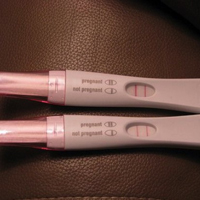Impact of family social support on psychological wellbeing of infertile women attending Yusuf Dantsoho Memorial Hospital, Kaduna, Nigeria

All claims expressed in this article are solely those of the authors and do not necessarily represent those of their affiliated organizations, or those of the publisher, the editors and the reviewers. Any product that may be evaluated in this article or claim that may be made by its manufacturer is not guaranteed or endorsed by the publisher.
Authors
Infertility could be a life crisis with a wide range of socio-cultural and emotional problems. These social consequences are usually not voluntarily disclosed by the affected women and consequently do not receive adequate attention so the women continue to suffer in silence. The study aimed to determine the impact of family social support on psychological well-being of infertile women attending Yusuf Dantsoho Memorial Hospital (YDMH), Kaduna. The study was a cross sectional study conducted at the YDMH, T/Wada, Kaduna. Two hundred and fifty-four women who presented to the gynecology clinic during the study period and consented to participate in the study were recruited consecutively. Data on socio-demographics and family social support were determined using a self-structured questionnaire. Psychological wellbeing was assessed using a General Health Questioner. Data was analyzed using EPI-INFO statistical package. Majority of the participants were Northerners (70.1%), Muslims (91.7%), and Unemployed (52.8%) with an average monthly income of less than N 20,000 (73.6%). Most were within the age group of 25–30 years (40.2%) and from monogamous families (70.1%) with most families having 0–5 children (89.4%). 67.7% of the participants had adequate social support from their husbands as against 32.3% who had inadequate support (such as availability of financial, support encouragement, concern and sense of social belonging). Only 33.5% had adequate social support from their in-laws while majority of them (66.5%) had inadequate social support. A total of 203 (79.9%) of the participants had psychological distress (self-administered questioner) while 51 (20.1%) had no psychological distress. Husbands and in-laws support were significantly related to psychological wellbeing of the infertile women. Adequate social support provided by family members reduces stress, improves psychological wellbeing and quality of life of infertile women.






